Welcome.
Caught up with the challenges and demands of everyday life, it is not always easy to leave home and travel. Our Jung on the Hudson online seminars provide an ideal opportunity to sit back in the comfort of your own home or office while exploring what lies within.
Our seminars offer the opportunity to stretch ourselves psychologically — an in-home vacation from the demands of everyday life and an opportunity to better balance spirit and matter and find meaning in our lives.
This year marks the 32nd anniversary of our Jung on the Hudson Summer Seminars! From the start, we have taken great pride in offering meaningful, in-depth content. What began as a small, in person program held in Rhinebeck, New York, thanks to the wonders of technology, the program has become internationally attended with participants last summer joining us from 29 different states and nine countries.
We hope you will join us for what promises to be another thought-provoking and stimulating time with like-minded colleagues from all over the world.
Save
Participate in both the weeklong and weekend programs and save $50.
Earn Credits
July 14-18, 2024
Relationships:
Who Are We to Each Other?
Weeklong Live Online Seminar
This week, our inquiry takes us into the transformative realm of relationships, asking Who are we to each other? What is the nature of our encounters and bonds — some lifelong, others fleeting, some filled with love and trust, others fraught with pain? How and why do we connect? Join keynote speaker James Hollis and faculty Chris Downing, Erik Goodwyn, Ann Belford Ulanov, and Tom Singer.
July 19-20, 2024
Profiles of the Self in Relationship and Over a Lifespan
Weekend Live Online Workshop
Dive into an examination of relationships across the lifetime journey from birth to death through the lenses of Eastern spirituality, analytical psychology, and neuroscience with Ashok Bedi.
Can we help?
If you have questions feel free to email us anytime or call the office between the hours of 10:00 a.m. and 4:00 p.m. Monday through Friday: 845-256-0191.
Relationships: Who Are We to Each Other?
July 14-18, 2024 | Weeklong Live Online Seminar
The meeting of two personalities is like the contact of two chemical substances: if there is any reaction, both are transformed.
—C.G. Jung
Our lives are permeated with relationships from the day we are born. As we go through life, we form innumerable connections with others. The relationships we make are influenced by other relationships in our lives, positively or negatively. No matter the nature of these relationships, they are an integral part of sustaining our sense of self and serve as vehicles on our road toward individuation — often significantly shaping who we are as individuals.
One type of relationship is friendship — a state of mutual caring, enduring affection, and trust between people. Other than family relationships, friendship is perhaps the most complex relationship of all. A good friendship means you can be yourself without fear of judgment and assume a level of honesty necessary to transcend the pitfalls that can deteriorate any relationship. The bonds that are based on shared interests, beliefs, values, and goals can often lead to deep connections. All cultures view friendships as important relationships through one’s life. For some, they are circumstantial and fleeting. Others are nurtured over time and go deep, reminding us that love is not just reserved for romantic relationships. A deep friendship can have all the characteristics minus eros. Sometimes we form deep friendships in our romantic and familial relationships, growing them beyond the traditional roles.
Friends are precious, but relationships are fragile and demand great care to sustain them. They can be impacted by time, distance, beliefs, societal influences, and modes of communication. They can easily fade into the background of our lives if we don’t make an effort to keep them relevant. In this time of rapidly advancing technology, the very methods by which we communicate are changing the ways we relate to one another — from simple face-to-face conversations to electronic communications using phones, email, video, and social media.
This seminar, taught by Jungian analysts and authors, will examine whether these modern methods of communication help or hinder. Explore friendship in relationship with others as well as our own unconscious Self, consider friendship through the stages of life, and reflect on the famous friendship of C.G. Jung and Sigmund Freud.
Presentations
Those who have attended our programs know how carefully we prepare the daily schedules and itineraries to provide a valuable and enriching experience. This summer, our live online format via Zoom will provide the opportunity to hear from a notable and outstanding faculty. We are confident that participants will find the material meaningful and personally enriching.
Sunday Evening, July 14 | 6:00–8:00 p.m. ET
JAMES HOLLIS
The Re-Membrance of a Lost Home: If Only the Kids Would Pipe Down, I Could Hear the Other Relatives Complain
These musings on friendship begin with the premise that no relationship with others can be any more evolved than our relationship with ourselves. Unfinished business within ourselves invariably shows up in outer forms and often undermines the promise of friendship. This presentation will explore this idea and the questions: How is it that we live with such unruly intra-psychic contents? and How might we begin to bring some relative order to the household?
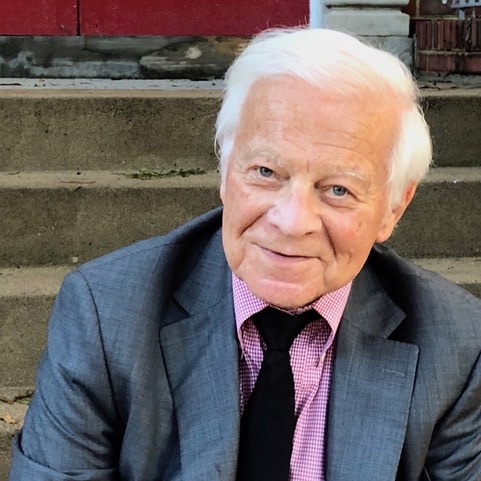
James Hollis, PhD, is a Zurich-trained Jungian analyst with a practice in Washington DC. He is the author of 20 books that have been translated into 22 languages. A Jungian analyst, he is former executive director of the Jung Educational Center of Houston, former Director of The Washington D.C. Jung Society and Philadelphia Jung Society; professor of Jungian Studies at Saybrook University; and vice president emeritus of the Philemon Foundation. His books include The Eden Project: In Search of the Magical Other; Finding Meaning in the Second Half of Life; What Matters Most: Living a More Considered Life; The Middle Passage: From Misery to Meaning in Mid-Life; Hauntings: Dispelling the Ghosts Who Run Our Lives; Mythologems: Incarnations of the Invisible World; Living an Examined Life: Wisdom for the Second Half of the Journey; and his most recent books: Living Between Worlds: Finding Personal Resilience in Changing Times and Prisms: Reflections on this Journey We Call Life. His forthcoming book is Living with Borrowed Dust: Reflections on Life, Love, and Other Grievances.
Monday, July 15 | 12:00 – 1:30 pm & 2:15 – 3:45 p.m. ET
CHRIS DOWNING
Freud and Jung: Stories of Their Friendship
Exactly 50 years ago, the letters Jung and Freud exchanged during the blossoming and deterioration of their friendship were made public. These letters make clear that each had a different understanding of their friendship from its very beginning. Each would have told the story differently. It’s also clear that each of us who reads these letters comes away with a different understanding, one that says as much about us as about them. I clearly remember how I read them back then and am curious to discover what they say to me now — and to you. This presentation will explore the nature of their friendship and how their friendship illuminates our own experiences.
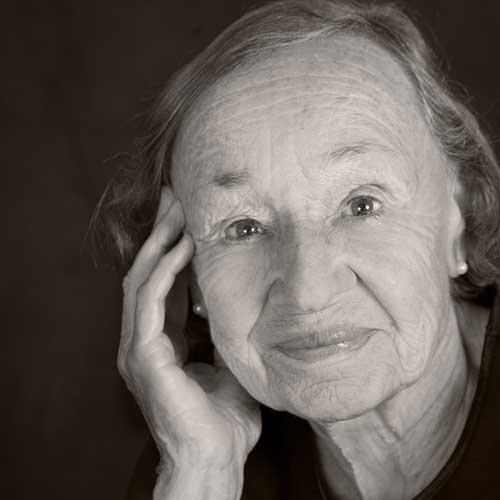
Christine Downing PhD. In 2021, when she turned 90, she retired from 35 years of teaching at Pacifica Graduate Institute. Before this “encore career,” she taught at San Diego State University for almost twenty years and, concurrently, at the California School of Professional Psychology. But all along what she has most enjoyed doing has been leading study tours to such destinations as Greece, Turkey, Sicily and on one she called Exploring Freud’s World. Among her many publications are The Goddess; Myths and Mysteries of Same-Sex Love; Women’s Mysteries; Gods in Our Midst; Psyche’s Sisters: Re-Imagining the Meaning of Sisterhood; Gleanings: Essays 1982-2006; and Mythopoetic Musings.
Tuesday, July 16 | 12:00 – 1:30 pm & 2:15 – 3:45 p.m. ET
ERIK GOODWYN
Does Social Media and Technology Help or Hinder our Desire for Connection with Others?
Early this year, the Surgeon General released a report highlighting the worsening depression epidemic. In fact, over the last hundred years, depression, anxiety, suicide, and addictions have all gotten worse despite tremendous progress in medicine, social justice, and technological advancement. Though the emphasis is on expanding mental care and access, an important question remains: Why are we getting more and more miserable? This presentation will explore one of the leading cultural causes — the loneliness epidemic — along with four key ways in which to fight against this trend. Human beings are social animals. We will look at important ways we can feed our starving social instincts. Of key importance here is the role of social media, technology, and the way we communicate with one another. Are these innovations in the way we connect adding to the misery, or might they be part of the solution?
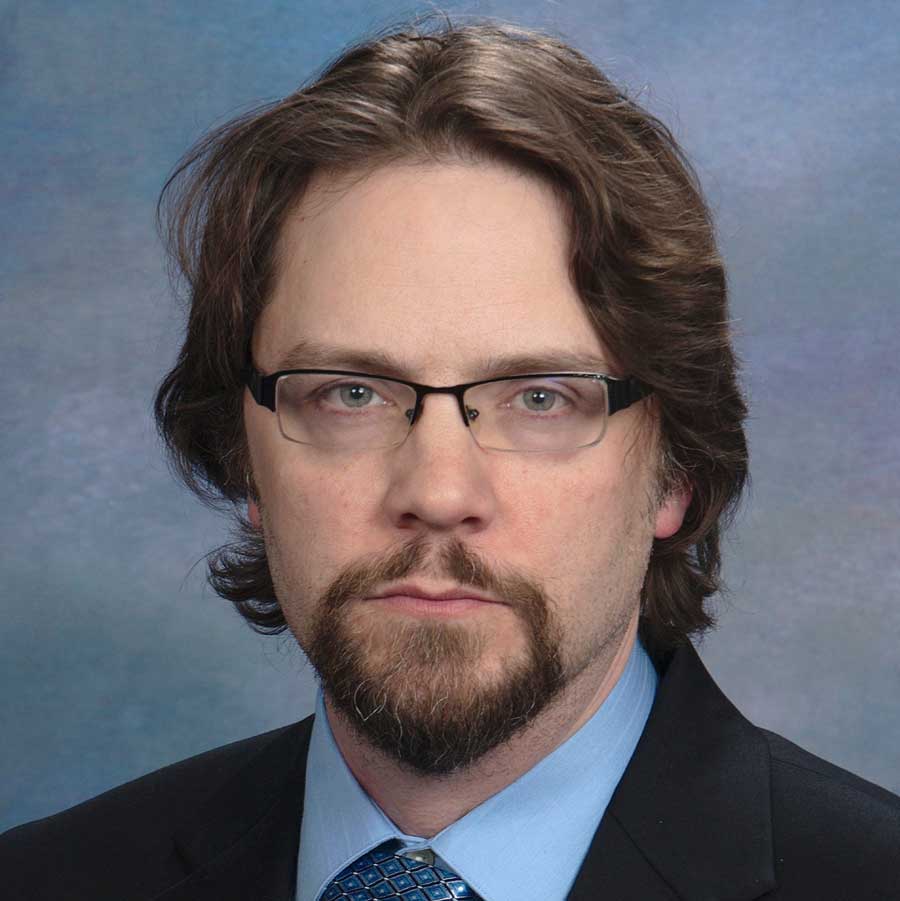
Erik Goodwyn, MD, is an Attending Physician at Eastern State Hospital in Lexington, Kentucky, Clinical Faculty at University of Kentucky, Courtesy Faculty at the Billings Clinic, and Adjunct Professor for University of Louisville, Department of Psychiatry. He has authored numerous publications in the field of consciousness studies, Jungian psychology, neuroscience, mythology, philosophy, anthropology, and the psychology of religion. He has delivered over sixty lectures, workshops, and essays in peer-reviewed journals on the above topics and has been invited to present at conferences on these topics in the US, Italy, Germany, Switzerland and Ireland.
Wednesday, July 17 | 12:00 – 1:30 pm & 2:15 – 3:45 p.m. ET
ANN BELFORD ULANOV
The Unguessed Friend: Assistance from the Unconscious
As varied and different as friends are in conscious life, we have similar unexpected friends from the unconscious. Friendship extends to inner life, the parts of us that are uncovered in analysis and through life experiences. Examples might be the shadow that may feel negative but initiates a change in who we are by making us befriend what we prefer to reject from our identity. Or it may be a sliver of a golden shadow of which we were truly unaware. Even more startling is the Self that requires our attention to defeat a mistaken ego plan. To enlarge the scope of our awareness, this presentation will explore Jung’s perspective about living with an Other — feeling the regard of a greater authority that ushers us into the community of being human and a part of humanity on this earth.

Ann Belford Ulanov, MDiv, PhD, is an internationally known and practicing Jungian analyst in New York City; Professor Emerita of Psychology and Religion at Union Theological Seminary; and international lecturer. She is the author of many books including Spiritual Aspects of Clinical Work; The Female Ancestors of Christ; Madness & Creativity; The Psychoid, Soul and Psyche: Piercing Space/Time Barrier; and Back to Basics; as well as with her late husband, Barry Ulanov, Cinderellla and Her Sisters: The Envied and the Envying; The Healing Imagination; and Transforming Sexuality: The Archetypal World of Anima and Animus.
Thursday, July 18 | 12:00 – 1:30 pm & 2:15 – 3:45 p.m. ET
TOM SINGER
Friendship, Stages of Life, and the Self
Drawing on the work of Erik Erikson and Jung’s notion of the Self, Tom Singer will explore the interconnection of three essential themes of our experiences as humans: friendship, stages of life, and the Self. He will also reflect on his own experiences of the depth and richness of friendship throughout his life. He will weave in fundamental theoretical considerations about the stages of life along the lines first articulated by the work of Erikson and also examine Jung’s notions of the Self and how we might see the experiences of friendship as contributing to and evoking the Self in relationships at various stages of our lives. Participants should be prepared to share their own experiences in these realms.
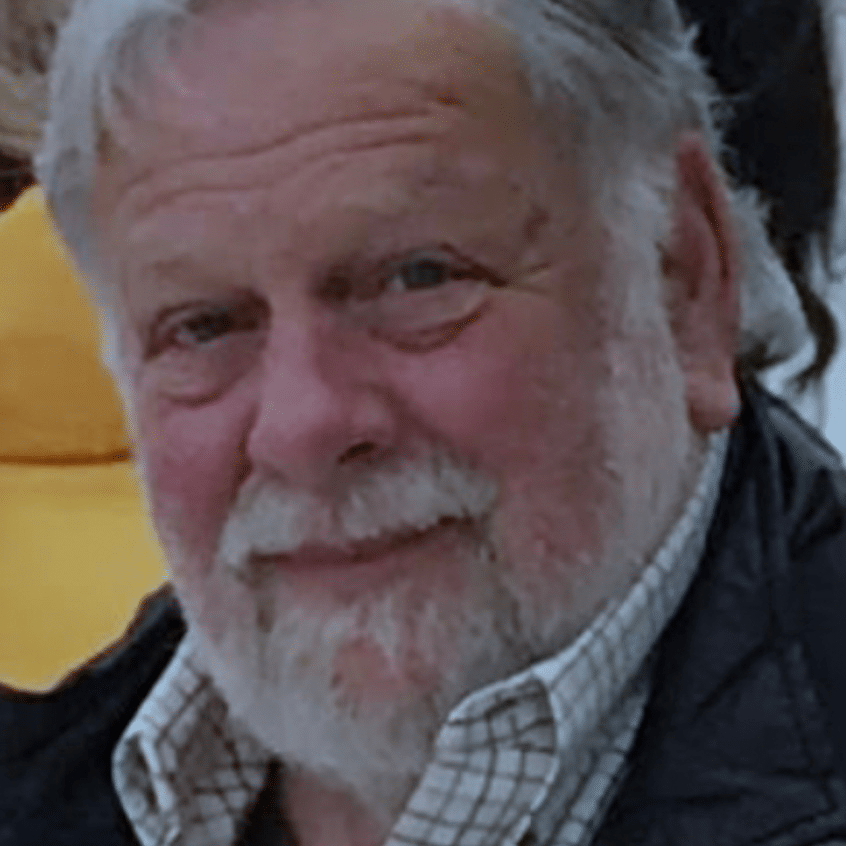
Thomas Singer, MD, is a psychiatrist and Jungian psychoanalyst who trained at Yale Medical School, Dartmouth Medical School, and the C.G. Jung Institute of San Francisco. He is the author and editor of many articles and books, including a series of books on cultural complexes in Australia, Latin America, Europe, Southeast Asia, and the United States. Cultural Complexes and the Soul of America won the IAJS award for Best Edited Book of 2020. In addition, Dr. Singer has co-edited a series of books on Ancient Greece/Modern Psyche. His most recent book, Mind of State: Conversations on the Psychological Conflicts Stirring US Society and Politics, explores the many layers of conflict contributing to the polarization and dystopian mood of our times. Dr. Singer serves on the Board of ARAS (Archive for Research into Archetypal Symbolism) and has edited ARAS Connections for many years.
July 19-20, 2024
ASHOK BEDI
Profiles of the Self in Relationship and Over a Lifespan
Weekend Live Online Workshop
Friday, July 19 | 6:00 – 8:00 p.m. ET and
Saturday, July 20 | 12:00 – 1:30pm & 2:15 – 3:45p.m. ET
Relationships are the soil in which the seed of the soul blossoms to its fullest potential. Our life journey begins in the matrix of relationships with the mother and father. It is enriched by friendships, ripens into an erotic relationship, then returns to the Self in old age and engages the transcendent in preparation for death, in uroboric conclusion of our journey to our celestial origins.
This weekend, we dive into these relationships and stages of life with Jungian psychoanalyst and a board-certified psychiatrist Ashok Bedi.
Throughout life, friendships can be mirrors to our soul. We will draw on Eastern spirituality, analytical psychology, and emerging neuroscience as valuable guidance in navigating these encounters. The Yoga Sutra, written by the sage Patanjali, crystallizes four types of relationships. Psychoanalyst Heinz Kohut proposes three modes of friendship. Together, we will explore these tales of tangled souls, asking: What are the rules of engagement? Is your enemy your most precious friendship?
Intimate relationships become the matrix of projections and reintegration for the Soul. When we work through and withdraw these projections, how do we experience the other? The tale of Krishna and his 16,000 lovers, from the Hindu Bhagwad Purana, is instructive to address this mystery.
Eventually we arrive at old age, where we ask, What do we hold and what do we fold? How to triage the priorities in aging? Is there life after death? We will explore this issue based on recent research, including Atul Gawande’s thesis “On Being Mortal.” As death is certain for everyone, how do we prepare for death and dying? We will also examine how the ancients engaged this mystery of death, transcendence, and life after death. The Eastern Upanishads and Jung’s commentary on the Tibetan Book of the Dead, as well as his own preparation for death, will prove instructive in guiding us to bring our Soul back to our celestial home.
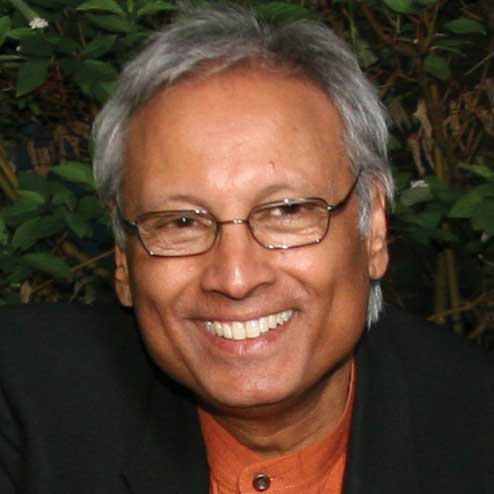
Ashok Bedi, MD, is a Jungian psychoanalyst and a board-certified psychiatrist. He is a member of the Royal College of psychiatrists of Great Britain, a diplomat in Psychological Medicine at the Royal College of Physicians and Surgeons of England, a Distinguished Life Fellow of the American Psychiatric Association. He is a Clinical Professor in Psychiatry at the Medical College of Wisconsin in Milwaukee and a training analyst at the C.G. Jung Institute of Chicago. His books include In the Eye of the Storm: Staying Centered in Personal and Collective Crisis; The Spiritual Paradox of Addiction; Crossing the Healing Zone; Awaken the Slumbering Goddess: The Latent Code of the Hindu Goddess Archetypes; Retire Your Family Karma: Decode Your Family Pattern and Find Your Soul Path; and Path to the Soul. He is the liaison for the IAAP for developing Jungian training programs in India and travels annually to India to teach, train the consult with the Jungian Developing groups at several centers in India including Ahmedabad and Mumbai. He leads the annual “A Jungian Encounter with the Soul of India” study group to several centers in India under the auspices of the New York Jung Foundation and the C.G. Jung Institute of Chicago.
Jung on the Hudson Registration
July 14-18, 2024
Relationships: Who Are We to Each Other?
A weeklong seminar with keynote speaker James Hollis and faculty Chris Downing, Erik Goodwyn, Ann Belford Ulanov, and Tom Singer
Tuition: $395
July 19-20, 2024
Profiles of the Self in Relationships and Over a Lifespan
A weekend workshop with Ashok Bedi
Tuition: $150
Register for both programs and save $50.
All seminar sessions will be recorded. In addition to making each session’s replay video available at the end of each day, all replays will be accessible through Sunday, August 19.
CE Credits and Certificates of Attendance are available for both programs. Details here.
Participation Teachings are appropriate for health-care professionals as well as the general public. Health-care professionals will be able to incorporate the tools and practices offered in this program in ways beneficial to clients or patients. No prerequisites are required.
Tax Deductions Seminars of this type generally meet the requirements for IRS deductions.
Faculty and Changes All rights are reserved by the program directors to make faculty substitutions and/or modify the program if needed.
Cancellations: All cancellations must be received in writing and subject to the following: For cancellations received by June 10: 50% refund per person. No refunds after this date.
Registration Form
If you plan on getting either CE Credit or a Certificate of Attendance please wait to register until details are added to the registration form. Or register now and let the office know so they can contact you when the information is available.